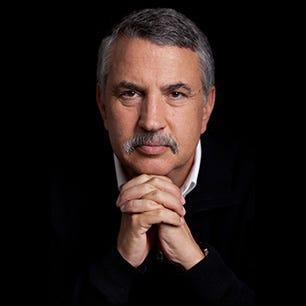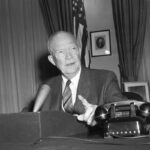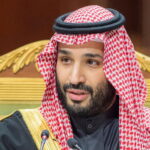
With every passing day, the war in Ukraine becomes a bigger tragedy for the Ukrainian people, the future of Europe and the world at large. There is only one country that might have the power to stop it now, and it’s not the United States. It’s China.
If China announced that it was joining the economic boycott of Russia — or even just condemning its unprovoked invasion of Ukraine and demanding that it withdraw — it might shake Vladimir Putin enough to stop this vicious war. At a minimum, it would give him pause, because he has no other significant ally aside from India in the world now.
Why would President Xi Jinping of China take such a stand? The short answer is that the past eight decades of relative peace led to a rapidly globalizing world that has been the key to China’s rapid economic rise. Peace has been very good for China.
We have already seen three “weapons” deployed. If China doesn’t help stop Russia now, these weapons will either ultimately hammer Putin into submission — which means they might be used against China one day, should it seize Taiwan — or damage Russia so badly that the economic effects will radiate everywhere.
The most important innovation in this war is the use of the economic equivalent of a nuclear bomb. The United States, along with the European Union and the United Kingdom, have imposed sanctions on Russia that are crippling its economy, critically threatening companies and shattering the savings of millions of Russians at an unprecedented speed and scope that bring to mind a nuclear blast.
Second, because the world is now so wired, super-empowered individuals, companies and social activist groups can pile on their own sanctions and boycotts, without any government orders, amplifying the isolation and economic strangulation of Russia beyond what nation-states are likely to do. The third weapon is both new and old: The West has rediscovered its voice. Faced with the raw, primitive onslaught by Russia against a flawed but aspiring democracy, the free world has been aroused. America and liberal societies in general can often look and act dumb and divided — until they aren’t.
The Biden administration assembled a powerful package of deep and broad economic sanctions and warned the Russian leader that if he invaded Ukraine, he’d be betting the economic viability of his country and regime. Tragically, Putin bet the farm.
Ever since Putin faced sanctions in 2014 for annexing Crimea and fomenting rebellion in eastern Ukraine, he has been amassing reserves of foreign currency and gold — some $630 billion worth — to try to insulate Russia from more global sanctions by giving his central bank all the ammo it needed to protect the value of the ruble. Or so he thought.
“It turns out that Russia’s foreign reserves strategy had a major flaw: About half of the money was held overseas in foreign banks — and now Russia can’t get to it” because of the sanctions, noted Fortune. So the ruble savings of many Russians are being ravaged.
Now add the sanctions, boycotts and pressure points coming from the super-empowered nonstate actors. My favorite is Jack Sweeney, a 19-year-old University of Central Florida student who created a Twitter account — @RUOligarchJets — that tracks the private jets of Russian billionaires close to Putin. Russia is now being canceled from every direction — from ballerinas to soccer teams to companies to orchestras — and it is being driven increasingly by super-empowered individuals and small groups. When the cancel juggernaut gets going globally, it acts without mercy.
There are two big dangers, though. If the economic nuclear bomb that the United States and its allies just detonated in Russia crushes its economy as quickly and deeply as I suspect it will, there is a danger, however remote, that Putin will go to greater, even unthinkable extremes, like launching a real nuclear weapon.
The second danger — and China, in particular, should keep this in mind — is that while nation-states may choose to lift their sanctions at some point for hard-core realpolitik reasons, nonstate actors may not. These are highly decentralized organizations.
There are signs that China recognizes some of these new realities, but its initial instinct seems to be to try to insulate itself, rather than step up to help reverse Putin’s aggression. To which I say: Good luck with that. China can’t be connected and disconnected at the same time.
So I hope not only that China’s leaders don’t bet their farm on a quick grab of Taiwan. I hope Beijing joins so much of the rest of the world in opposing Putin. What will it be, Xi?
This article originally appeared in The New York Times.
This article originally appeared on Palm Beach Post: China can end the Ukraine war by siding with the U.S. and its allies




